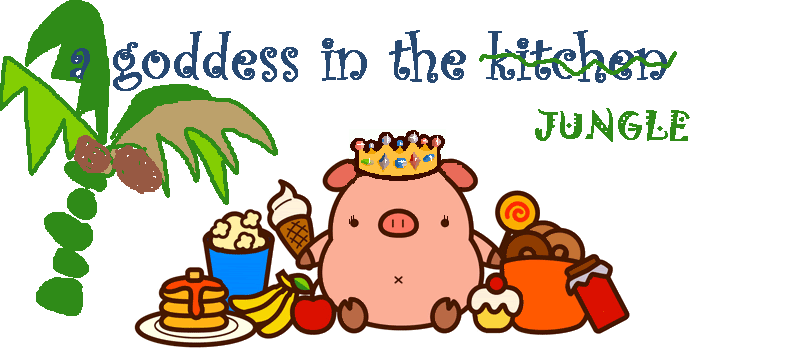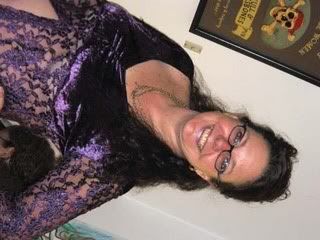
- JESUS:
- They shall have the earth...
- GREGORY:
- What was that?
- JESUS:
- ...for their possession. How blest are those...
- MR. CHEEKY:
- I don't know. I was too busy talking to Big Nose.
- JESUS:
- ...who hunger and thirst to see...
- MAN #1:
- I think it was 'Blessed are the cheesemakers.'
- JESUS:
- ...right prevail.
- MRS. GREGORY:
- Ahh, what's so special about the cheesemakers?
- GREGORY:
- Well, obviously, this is not meant to be taken literally. It refers to any manufacturers of dairy products.
After years of extensive lobbying by the likes of Will Studd, Food Standards Australia and New Zealand (FSANZ) have finally announced a review of domestic dairy processing standards that currently ban the production and sale of raw milk and the cheeses made with it.
Sticky says:
This opportunity to effect change may not come again for another ten years so it is vital that anyone who would like to liberate Australian Cheesemakers make a submission to FSANZ. That's you, as an individual, even if you have nothing to do with the food industry, even if you (heaven forbid) don't eat cheese. It's about the right of the consumer to choose what they consume and the support of traditional practices such as the production of raw milk cheeses and other products to ensure that they don't die out. Please, please, please?
Now, once I got over my alarm that there might even BE people who don't eat cheese, I realised that this is a unique opportunity to actually affect policy implementation at a SOLE level. I mean, all the hype over the "safety" of GM foods, and The Nanny State still thinks we need to be protected from a most basic food source in its least adulterated form??
I am of an age where I can remember drinking milk straight from the beast at various family farms, getting up early enough to be the one that literally creamed the plug of cream out of the glass bottles of UNPASTEURISED, UNHOMOGENISED milk that had been delivered by the local milkman and his Clydesdale in the wee smalls!
The FSANZ discussion paper it is available to download here.
I urge all of you, dear readers, to cut and past the following into your email and submit it. SOLE isn't just about buying your asparagus in season, it's about supporting those producers who want wider choice and access to raw products (milk and otherwise) without Big Brother dictating to them.
This blog has Stats counters. I know where you all are. Readers who don't get on to this will be hunted down and humorlessly choked with a round of imported roquefort.
Here's the email:
Send to: Submissions@foodstandards.gov.au
Re: Proposal P1007 Primary Production & Processing Requirements for Raw Milk Products (Australia only)
I would like to register my support for an amendment to the code to bring Australia into line with other major international cheese manufacturing countries. My objections to the current standards that prohibit the production and sale of most cheese made from raw milk in Australia are as follows:
1. The purpose of the Standard is to guarantee safe cheese – however the assumption that pasteurisation as a single step will guarantee safety is not scientifically valid.
2. The single critical control point that guarantees safety for all cheese varieties is starter culture activity that creates a hostile environment to pathogens in the cheese. Starter culture activity comprises two biological components, the first is primary fermentation of milk sugar to organic acids during cheese making and the second is secondary fermentation/metabolism of organic acids, fat and protein during ripening. This principal is supported by scientific studies and accepted by all of the major cheese producing countries of the world i.e. European Union (EU), USA, and Canada.
3. The standard is anti-competitive and trade restrictive. The standard does not encourage world best practice in cheese/milk production and allows the use of milk of poor microbiological quality for cheese making.
4. The microbiological standards for cheese are overly onerous in relation to E.coli and have led to very questionable practices in domestic production. The standard is out of step with scientific studies and the microbiological standards applied in overseas countries.
5. The standard is a breach of Australia’s commitment to WTO Policy, as it cannot be justified on scientific grounds for food safety. WTO Article 5.1 requires members to 'ensure that their sanitary or phytosanitary measures are based on an assessment, as appropriate to the circumstance, of the risks to human, animal or plant life or health, taking into account risk assessment techniques developed by the relevant international organizations'. Article 5.2 states in the assessment of risks 'Members shall take into account available scientific evidence'. Article 5.4 states 'Members should, when determining the appropriate level of sanitary or phytosanitary protection, take into account the objective of minimizing trade effects'.
6. The Standard is overly prescriptive. It does not meet the Council of Australian Government (COAG) guidelines on primary production and processing standards that stipulate an objective of minimal effective regulation.
7. The standard is highly discriminatory. It provides for international exemptions such as Roquefort and Swiss cheese but denies Australian cheese makers a choice of making similar cheese from raw milk. Australian artisanal cheese makers deserve to have the opportunity to develop a significant point of difference to enable their products to survive in a competitive market.
8. Over the past two decades international artisan and farmhouse cheese production has enjoyed a significant growth in demand due to a revolution in consumer interest. Many of these cheeses are made from raw milk and are recognised as having an infinitely superior flavour and regional character when compared to similar cheeses made from pasteurised milk. However unlike their overseas counterparts Australian consumers have been denied a choice of cheeses made from raw milk.
9. There is no reason why cheese made from raw milk should represent a greater degree of risk than those produced from pasteurised milk provided recognised international guidelines are adopted in Australia.
Signed (Your name)
Address (Your address)





6 comments:
Yes, we'll have no immune systems left if we don't eat raw milk cheeses. Can't stand all that sanitisation.
Off to get emailing.
Cheers Luvvie, you're awesome in your fabulousness. xx
There is a Group blogging project over at Nourished Magazine, we're creating a submission everyone can copy. May I also suggest that those who want to make sure raw milk is available as well as raw cheese, make two separate submissions.
BTW join herdshare.com to start a herdshare co-op and secure a source of local, fresh, raw milk in your region.
blessings
Joanne Hay
Nourished Magazine and
Herdshare.com
Thanks for the heads up, Joanne.
Off to make a separate submission for the raw milk!
And the cheese-eaters. Blessed be they also! :)
Don't eat cheese???!!!! Not even - Wensleydale?!
... all I said was, 'This cheese is good enough for Jehovah.'
'You're only making it worse for yourself, you do know that?'
Post a Comment